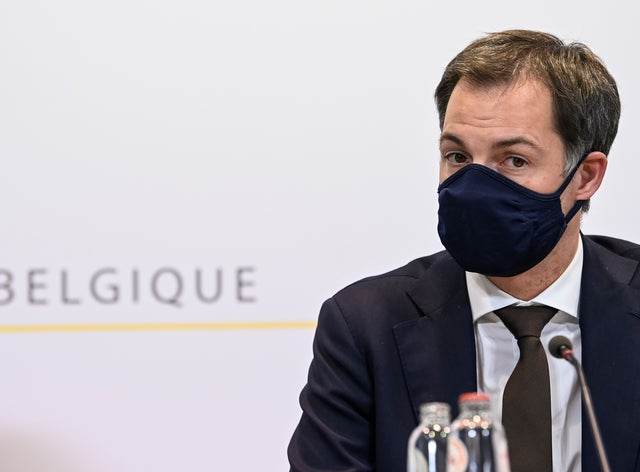The Belgian government is further tightening restrictions on public life, Prime Minister Alexander De Croo announced on Friday, as the second wave of new coronavirus infections pounds the country harder than anywhere in the European Union.
“These are the last chance measures,” De Croo said following crisis talks. “It’s up to us all to make sure that these measures have an effect.”
As of Monday, all non-essential shops will have to close for at least one month. Customers can still order online and pick their items up. People working in professions with close customer contact – such as hairdressers – will have to completely stop their activities.
Until mid-December, social contacts are also to be severely restricted: after Sunday, only one visit per house is allowed per week – except for people living alone, who can welcome one more visit per week.
Belgium has the highest infection rate in Europe, according to the European Centre for Disease Prevention and Control, and hospitals have rapidly filled in many parts of the country. Doctors have issued warnings about near-capacity intensive care units.
Between October 20 and 26, the country of 11.5 million people saw 15,316 daily infections on average, Belgian health body Sciensano reported.
The government had already ordered all bars, cafes and restaurants to close and imposed a nightly curfew earlier this week. Working from home is already obligatory where possible.
De Croo said the government wanted to avoid a full-blown lockdown for the sake of citizens’ mental well-being. In neighbouring France, residents are to be cooped up in their homes for all but essential purposes.
Some measures remain unchanged: A maximum of 15 people can attend funerals, and public gatherings outdoors are limited to four people.
A national curfew applies between midnight and 5 am – and from 10 pm onward in Brussels.
Borders remain open, but travel is highly discouraged.
Schools are to remain closed until mid-November, with school holidays being extended.










Discussion about this post